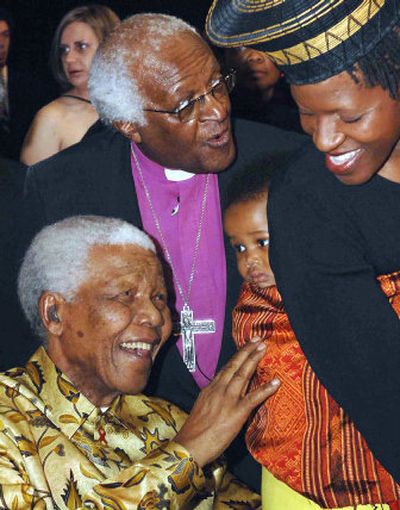75-year-old Tutu keeps a critical perspective

CAPE TOWN, South Africa – Nobel peace laureate Desmond Tutu celebrated his 75th birthday Saturday with a gala dinner attended by 1,200 guests, capping off weeks of celebration in honor of the tireless campaigner against apartheid.
Former President Nelson Mandela was among those attending the dinner in Johannesburg. The ruling African National Congress also paid tribute to the retired Anglican archbishop of Cape Town.
Far from slowing down, Tutu seems more determined than ever to speak up on issues ranging from crime to AIDS to the war in Iraq.
“What has happened to us? It seems as if we have perverted our freedom, our rights into license, into being irresponsible,” he said at a lecture last week about South Africa’s high rates of violent crime.
“Perhaps we did not realize just how apartheid has damaged us so that we seem to have lost our sense of right and wrong,” he said.
Earlier this week, when asked what he would like to achieve in his remaining years, Tutu said he would like to see peace in Sudan’s Darfur region, Zimbabwe and other troubled spots.
Tutu, who voted for the first time at the age of 62, was named this year as a member of a U.N. advisory panel on genocide prevention, drawing on his long experience campaigning against apartheid. He was awarded the Nobel Peace Prize in 1984.
He retired in 1996, two years after the end of apartheid, hoping for a “slightly less hectic life.” But he then agreed to a request by Mandela to head the Truth and Reconciliation Commission, which offered perpetrators of apartheid crimes amnesty if they told the truth about their activities.
Tutu sometimes broke down and wept with the victims as he listened for two years to harrowing testimony about atrocities committed under apartheid – abductions, torture, death squads and bodies torched beyond recognition as their killers enjoyed a barbecue on the side.
He criticized the last white president, F.W. De Klerk, for failing to accept responsibility for apartheid’s evils – and lambasted the current government’s limit of $5,000 on reparations for victims.